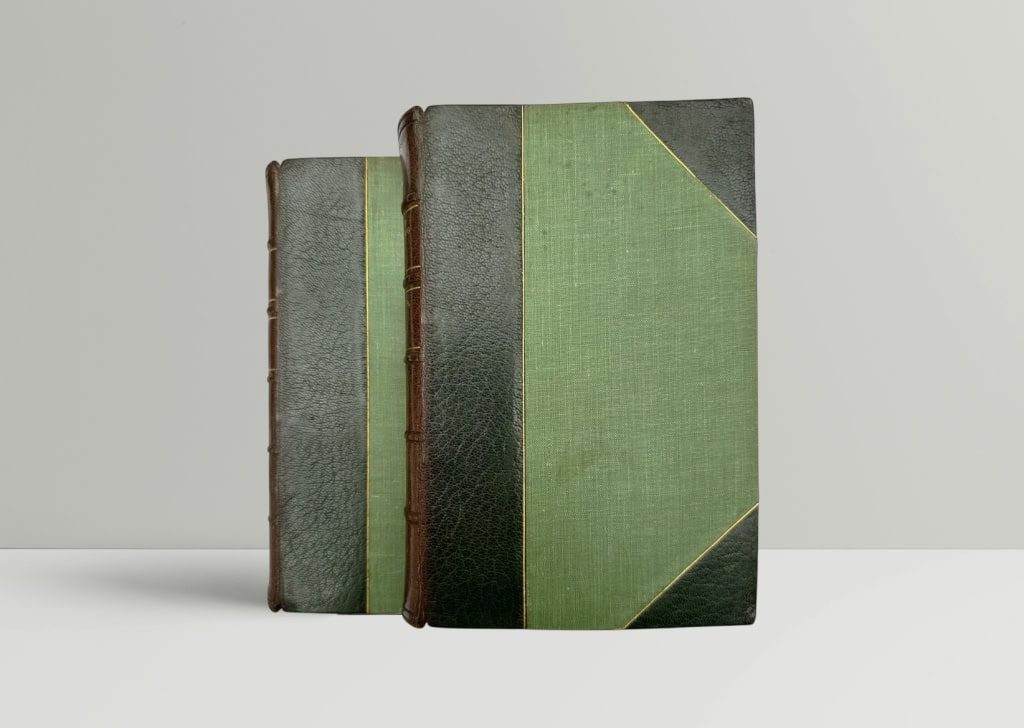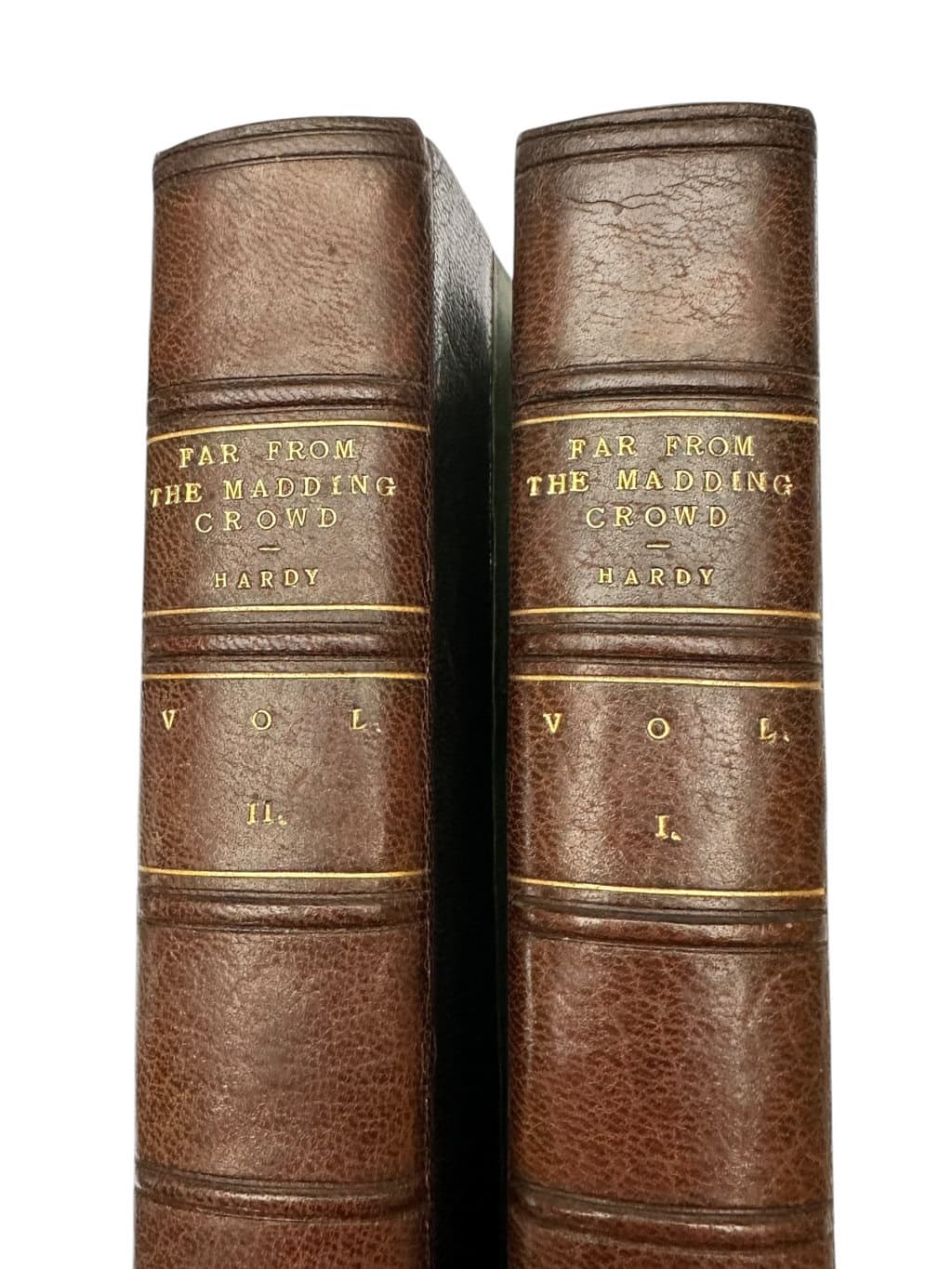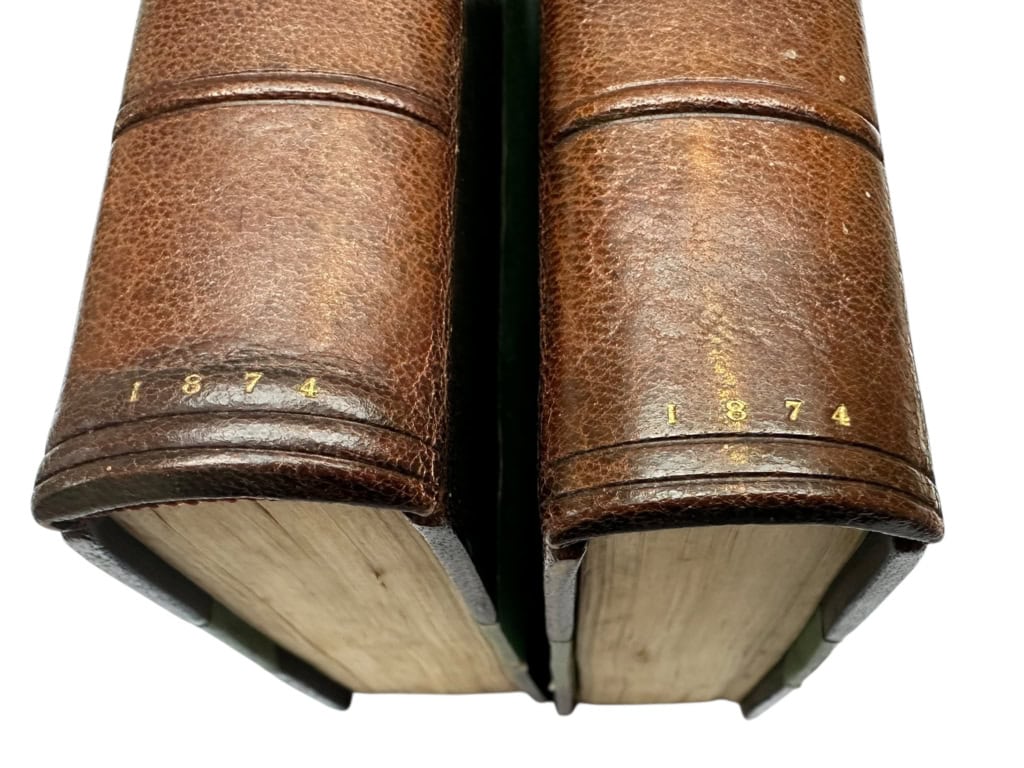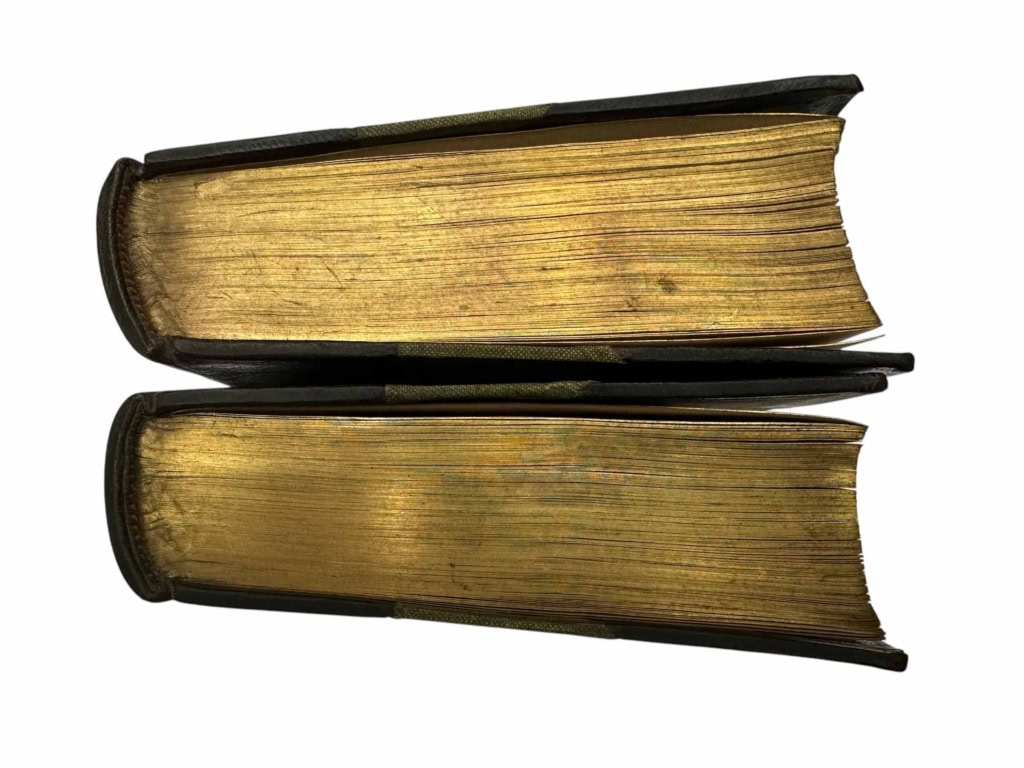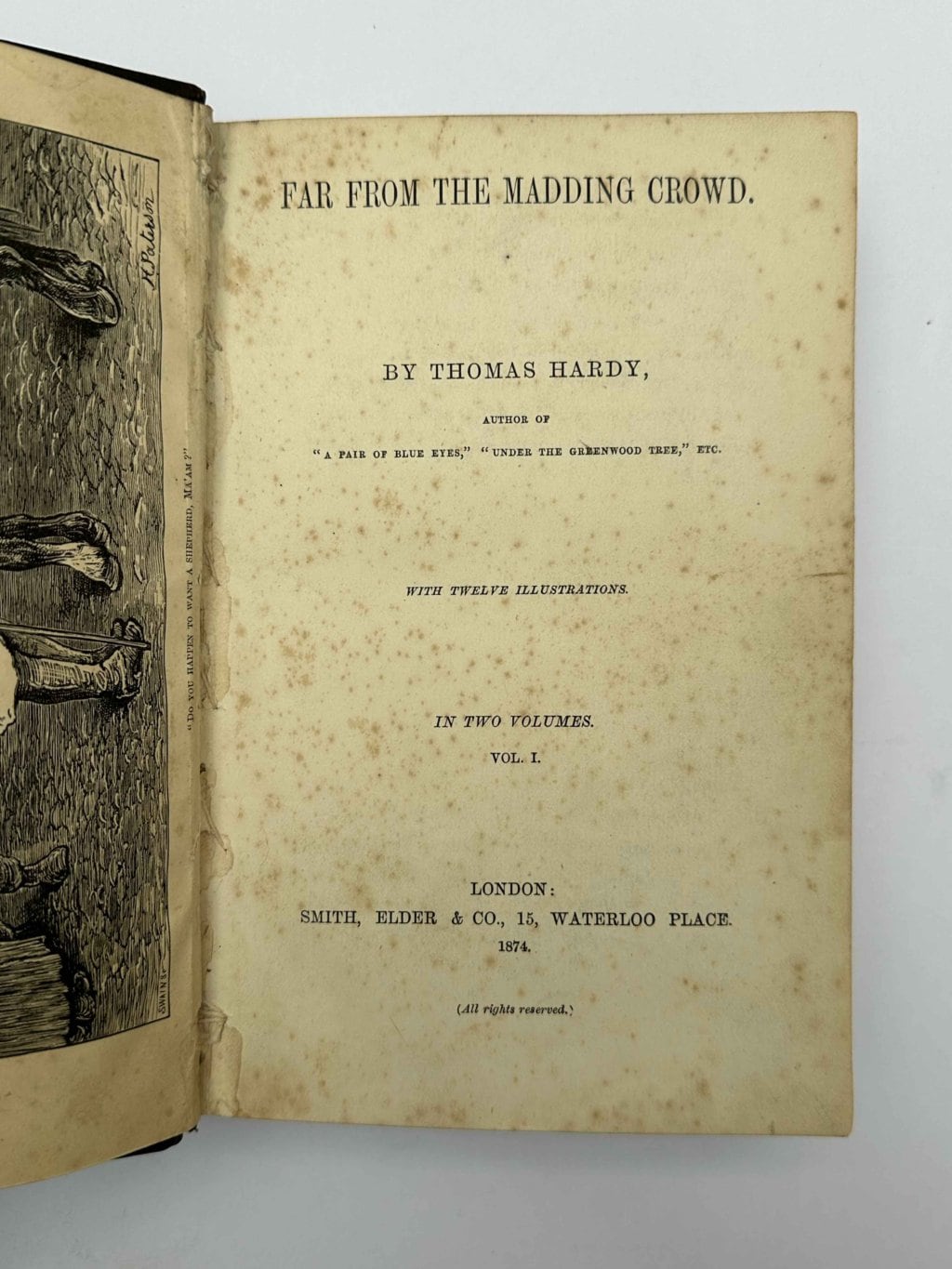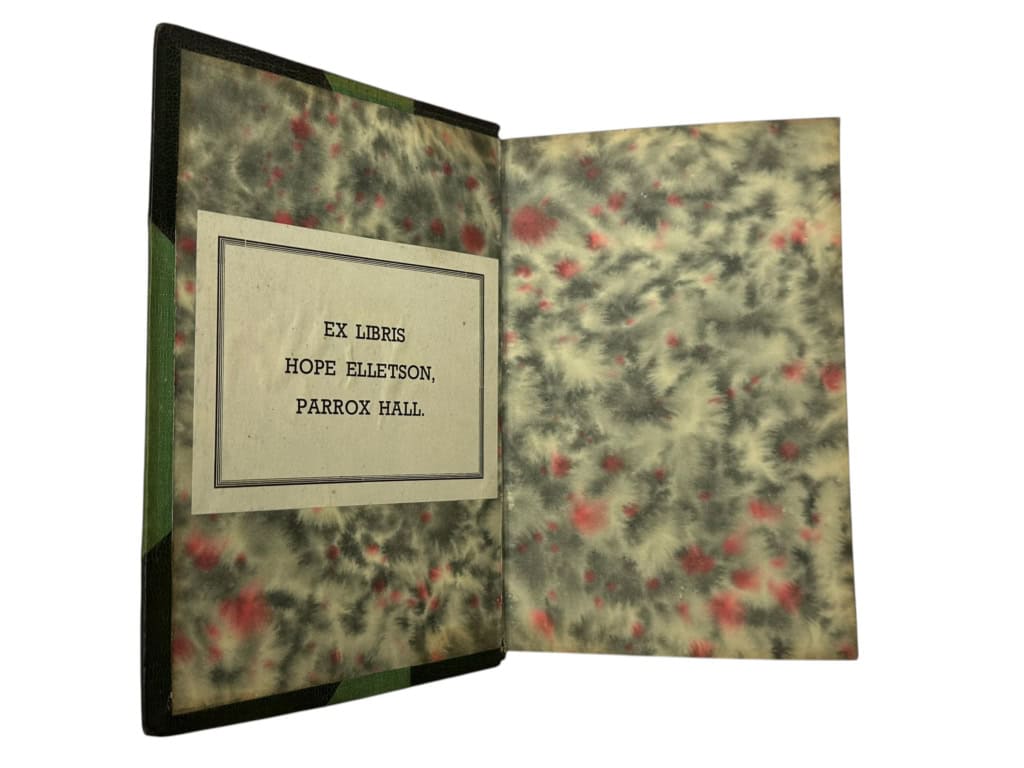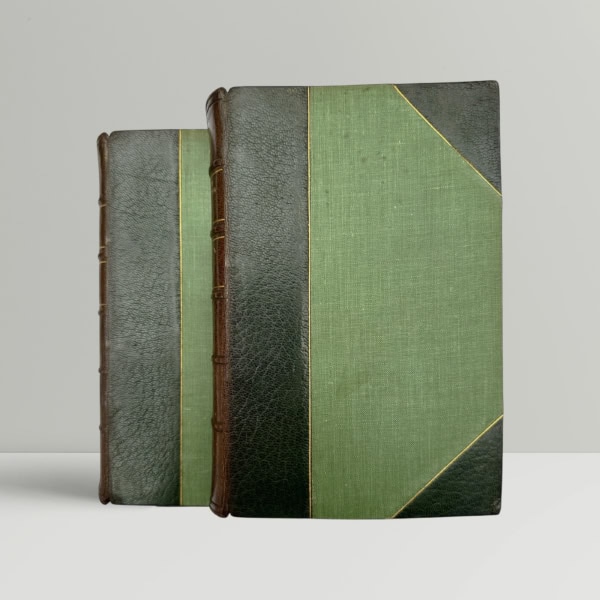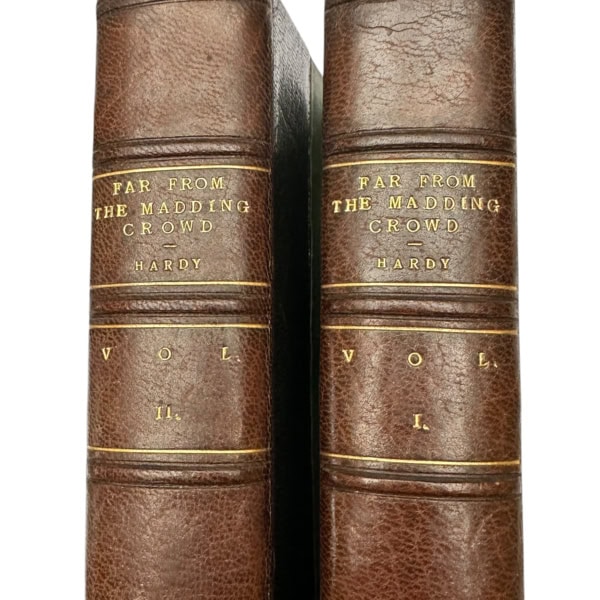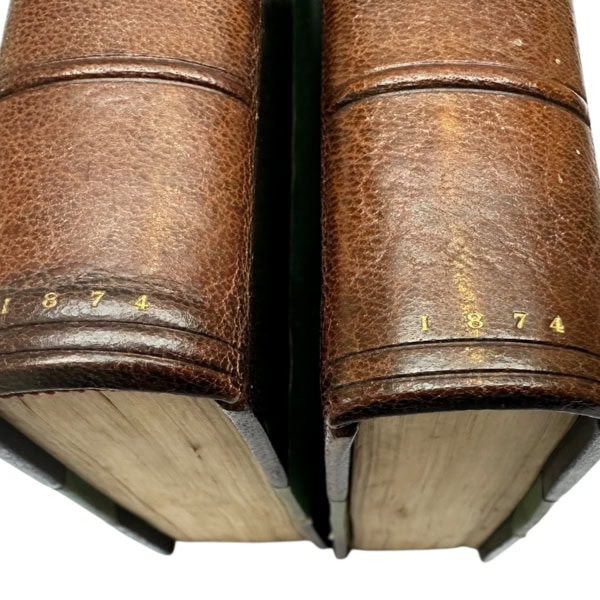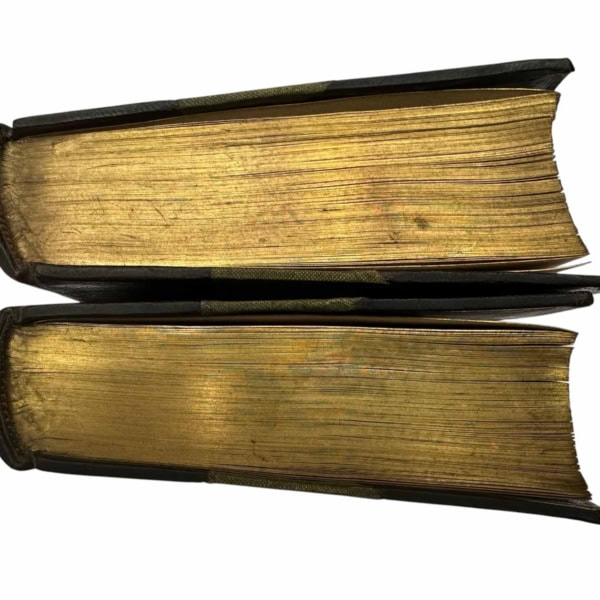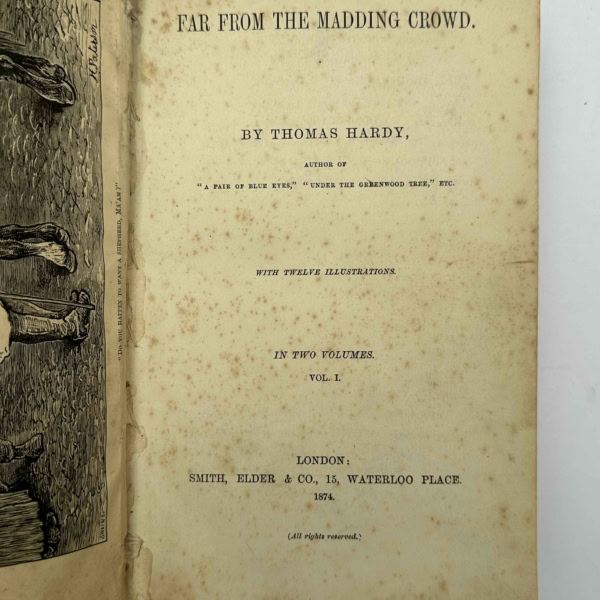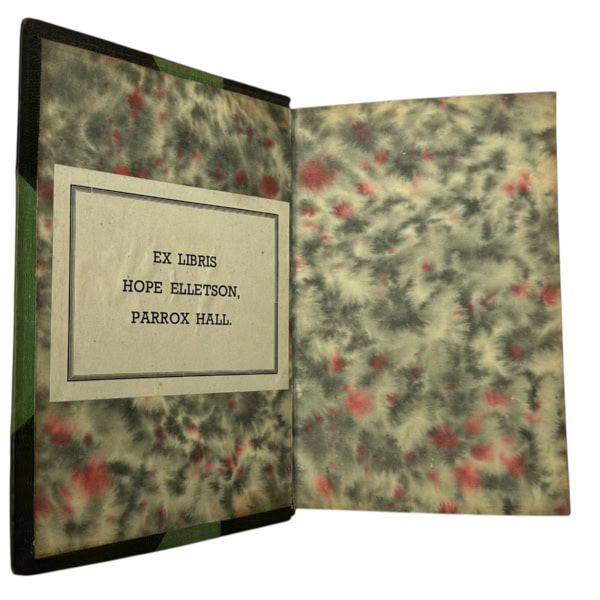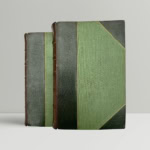Thomas Hardy – Far From The Madding Crowd – First UK Edition 1874
£4,500.00
First edition, one of only 1,000 copies printed of Hardy’s fourth novel published by Smith Elder in 1874. A very good pair of volumes – spotting within and throughout, reading and handling marks (well read) – bound in contemporary half-leather and green cloth, with raised bands and beautiful gilt titling. Fading to a patch to front board of volume two. Previous owner’s bookplate to the front pastedown of one volume. Some bowing to the boards.
“Far from the Madding Crowd is the first book which shows Hardy at the top of his powers, and the first in which he was able, with full success, to function as a poet as well as a novelist… [the work] functions almost perfectly as a novel, but a novel which would be nothing without its poetic foundation. Indeed, Hardy and Emily Brontë were the nineteenth century’s only genuinely poetic novelists… The rural dialogue is more perfectly judged than any comparable innovation in English fiction of its time… What Hardy… does when he enriches his countrymen’s talk is to articulate their souls. He can do it because—as… one of them—he never patronises them: he can thus give them the wisdom they possess but do not, with their limited vocabulary, habitually articulate” (Seymour-Smith, 187-92).
(We don't keep all of our stock in the shop, so send us an email if you're planning a trip to see a particular author or book.)
- Description
Description
First edition, one of only 1,000 copies printed of Hardy’s fourth novel published by Smith Elder in 1874. A very good pair of volumes – spotting within and throughout, reading and handling marks (well read) – bound in contemporary half-leather and green cloth, with raised bands and beautiful gilt titling. Fading to a patch to front board of volume two. Previous owner’s bookplate to the front pastedown of one volume. Some bowing to the boards.
“Far from the Madding Crowd is the first book which shows Hardy at the top of his powers, and the first in which he was able, with full success, to function as a poet as well as a novelist… [the work] functions almost perfectly as a novel, but a novel which would be nothing without its poetic foundation. Indeed, Hardy and Emily Brontë were the nineteenth century’s only genuinely poetic novelists… The rural dialogue is more perfectly judged than any comparable innovation in English fiction of its time… What Hardy… does when he enriches his countrymen’s talk is to articulate their souls. He can do it because—as… one of them—he never patronises them: he can thus give them the wisdom they possess but do not, with their limited vocabulary, habitually articulate” (Seymour-Smith, 187-92).

